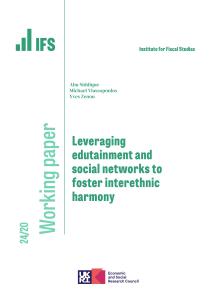Following this, we use longitudinal data on children and their parents to assess empirically the extent of intergenerational mobility in Britain. Based on data from the National Child Development Survey, a cohort of all individuals born in a week of March 1958, we find that the extent of intergenerational mobility is limited. We report an intergenerational correlation of the order of .40 to .60 for fathers and sons and .45 to .70 for fathers and daughters in terms of labour market earnings and years of schooling. An examination of quartile transition matrices between parental and child earnings outcomes reveals a similar pattern. Finally, it seems on the basis of these transition matrices that there is an important asymmetry in intergenerational earnings mobility, with upward mobility from the bottom of the earnings distribution being more likely than downward mobility from the top.
The nature and extent of intergenerational mobility in Britain to what extent there is a correlation between a parent's position in the income distribution and that of his or her children at similar points in the life-cycle is a topic of considerable interest for social scientists and policymakers. In this paper we examine the concept of intergenerational mobility in earnings and in lifetime or 'permanent' status, and discuss its measurement using regression and quantile transition matrix approaches. We discuss the importance of the mobility issue as it relates to inequality of welfare or opportunity, and in the context of the debate on whether the route by which intergenerational transmission occurs is social or genetic.








